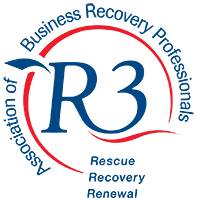How will an IVA affect my credit rating?
An Individual Voluntary Arrangement (IVA) can be a positive way to manage problem debts that are spiraling out of control.
If you live in England, Northern Ireland or Wales and are struggling to pay at least £5,000 to two or more creditors then this debt solution could be the best option for you.
That said, getting out of debt is never easy, and even though an IVA will help you improve your finances in the long-term, it can have a temporary impact on your credit rating.
Why will my IVA affect my credit rating?
There is no escaping the fact that an IVA will affect your credit rating. It’s a legally binding debt solution that uses government legislation to consolidate your payments into one affordable monthly amount and write off up to 81% of unsecured debt.
However, as you will be declared as insolvent your Individual Voluntary Arrangement will be recorded on your credit report where it will stay for six years. Understandably this will have an impact on your score which will go down as a result and can make it more difficult to secure credit in the future.
By entering into an IVA, you are admitting that you are struggling to repay past or current debts and despite entering the arrangement being a positive step to dealing with what you owe, future creditors may view you as a high-risk customer. This means that in future you may face higher interest rates or be rejected for credit such as loans or credit cards
Despite having a negative impact on your credit score it’s important to keep in mind the positive aspects of an IVA.
Your Individual Voluntary Arrangement can offer you a fresh start. Although your credit rating will be impacted for six years, once your arrangement is complete you can begin working to build your credit again.
How do I understand my credit score?
Understanding your credit score might seem daunting but it doesn’t need to be. Put simply, the higher your score, the better access you’ll have to credit deals. The lower the score, the harder it will be for you to be accepted for new lines of credit.
Any time you borrow money, or enter a debt solution like an IVA, details of those transactions are added to your credit report, which is a documented history of your financial life.
The details registered on your credit report can be viewed by the credit reference agencies (like Experian or TransUnion) who decide what your credit score will be.
Any transaction listed on your credit report that the credit reference agencies interpret as making you a risky borrower (expensive loans, debt arrangements, defaulted payments), are likely to lower your credit score.
How long will an IVA stay on my credit report?
Your IVA will appear on your credit report from the date it is approved, and will stay there for six years.
If you finish your agreement early, for example if you receive a windfall or inheritance that will clear the debts included in the proposal, your IVA will still remain on your file but marked as ‘complete’.
Can you pass a credit check with an IVA?
As an IVA can impact your credit rating it can cause problems obtaining credit in the future. It is worth keeping this in mind if you plan to move or rent a house or other property through a letting agent during your IVA term.
You may still be able to get some types of credit during your agreement – typically with low credit limits and high interest rates. It’s worth remembering that applications for credit over £500 need to be approved by the insolvency practitioner (IP) managing your arrangement.
You should also keep in mind that every application for credit will impact your score so should only apply for credit you really need or are likely to be approved for.
How can I remove or update an IVA on my credit report?
Your proposal will appear on your credit report from the day that it is approved and will remain there for six years.
During this time you don’t need to do anything – when your IVA comes to an end it will automatically be marked as ‘complete’.
If you are worried your credit report is incorrect in the future, you can ask for this to be amended but you may be required to send proof of your IVA completion certificate or a letter from your IP.
It is also possible to add details of the reason behind your insolvency to your credit report. According to Experian, you can ask the company to add a note on your report which explains your circumstances, such as redundancy or long-term illness.
How long after an IVA can I get credit?
As mentioned previously, you can try to obtain credit during the term of your agreement, but this is subject to approval by your IP.
Your IVA, and credit rating, will restrict your borrowing power for six years and as such it will make it tricky to access the best deals.
However, after your agreement comes to an end you can begin sensibly rebuilding your score by accessing small amounts of credit.
How can I improve my credit score after my IVA?
When you complete your IVA your credit score will likely be low. Although this may seem frustrating, especially as you will have made every payment required towards your agreement you can still take steps to improve it.
After six years in your IVA, your borrowing powers will slowly increase and despite seeming daunting the best way to improve your chances of increasing your score and accessing the best rates is to borrow.
You should keep an eye on your credit score using a reputable company and take small steps to improve your score.
It’s important at this point not to undo all the hard work that you’ve put in – after all you don’t want to lose control of what you owe again. If you are considering taking out credit of any kind, whether a credit card, loan or even a phone contract, the most important thing is to be realistic.
You should only take out small amounts of credit you know comfortably fits within your budget and you won’t miss any payments. You should never use more than 50% of your total available credit and make sure you stay within your agreed limits.
Most importantly, you should pay any balances in full each month to avoid interest building up.



